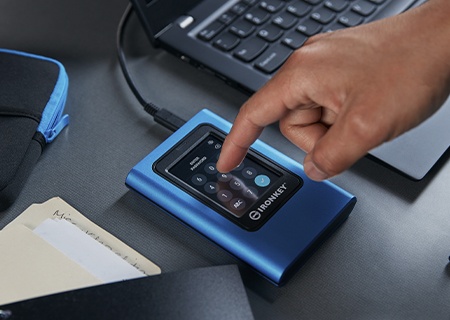Computer users may not realize it until the time comes, but one of the worst things that can happen to their system is that their data becomes inaccessible.
There can be many causes: theft, power outages, liquid spills, and, most famous of all, storage corruption.
Corrupted data means that the files in question suddenly become unusable, whether they are memorable photos or classified files. Data backup is therefore essential!
If you’ve never backed up your chosen files before, your first time may take a while depending on the amount of data you want to store.
But once this first backup is made, most of the work is done, and the next ones will be quite simple.
We want to share with you some simple but effective tips that we hope will make your job of backing up your system easier. Let’s go !
1. Choose the data to back up
When it comes to deciding what to back up, we immediately think of work or personal files. These could include photos, videos, and documents that, if corrupted, might be impossible to replace. You can also back up apps, programs, and system settings that you want to keep a version of. All this will put your mind at ease and, should anything happen to your system, you will have an updated version at your fingertips.
2. Planning
If you always want to have the most up-to-date versions of your files, it is essential to prepare a schedule! The model of your schedule will depend a lot on what you want to save.
If it is only personal files, it is not necessary to perform backups as regularly, because the volume of data created monthly is less significant. On the other hand, for professional files, backups will have to be more frequent.
Depending on your workload, it is recommended to perform a daily or weekly backup. Check out our guide on configuring and scheduling automatic backups on Windows and MacOS .
3. Don’t settle for a cloud backup
The cloud is probably one of the easiest ways to back up data, especially when we’re talking about phones and computer systems.
This data collection system can be automated, without effort for the user. Although this is a good way to back up your data, it is not recommended to stick to this option alone.
Cloud companies can be hacked. And, more commonly, we’ve seen that account terms and agreements can change, which could put your files at risk.
A monthly subscription may also be more expensive than purchasing an external storage device.
4. Automation
Automatic backups require minimal effort, which is incredibly useful in today’s world. In the cloud, it’s easy to set up; You can choose how often you want to update your file backups. It is also possible to use the same process on your external storage devices using certain programs on your system, including Windows® Backup/File History and macOS® Time Machine. Just type “backup” in the search bar and read the instructions if you want.
5. Rule of Three Theory
This rule is based on the theory that you have three copies of your files. You store two on different devices (whether cloud or external storage) and one copy in a secure location like a vault or offsite.
To some, this theory may seem a bit far-fetched, but if something were to happen to your saves, you’ll thank God you did!
6. Choose the right external device
When choosing the right external device for your backups, you need to think not only about its capacity but also its durability and speed. External hard drives (HDDs) are a cheap option for large amounts of data, and can offer high speed.
But if they fall or are misplaced, the interior may be damaged which may make some data impossible to recover.

External SSDs are considered a slightly more expensive version of their hard drive cousin, but it’s worth the purchase if you’re willing to spend a little more. They are more durable, faster and normally much smaller than hard drives, making them more portable. The Kingston XS2000 USB-C External SSD is a great option for personal or business backups. With speeds of up to 2000MB/s read, 2000MB/s write * and capacities ranging from 500GB to 2TB ** , there are versions to suit every user’s needs. It’s USB 3.2 Gen 2×2 which reduces the waiting time to transfer data from one device to another!
If you want something more secure to protect your sensitive files, the Kingston IronKey Vault Privacy 80 external SSD is FIPS 197 certified with 256-bit XTS-AES encryption. The color touchscreen allows you to set two passwords (Admin and User) to ensure your data is protected at all times.
If SSDs aren’t your cup of tea, Kingston also offers a range of storage options to suit your needs, like USB drives and SD and microSD memory cards . Reliable storage for photos, music, videos and personal documents that keeps your files accessible and secure.
By choosing the right storage and following these simple tips, your backup processes will be a breeze!



